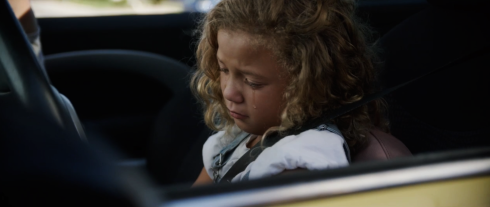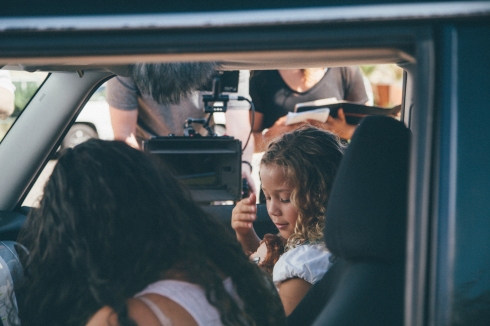For our 6th short film we had the chance to work with a wonderful child actor, Jayda Fink. We were very excited to work with her because we have never featured children in our films before. While we were prepared to work with a 7 year old, we did learn a lot from that shoot.
Here’s what is important to do when working with children.
Studio Teacher and Child Laws
There are laws in place that protect children from being over worked. Understandably, children can’t work nearly as much as an adult can. When scheduling a film, it’s important to remember that the amount of time a child actually spends on set is very little.
To make sure a child is properly cared for and given all their necessary breaks, it’s vital to have a Studio Teacher on set. Studio teachers serve way more purposes than to just give children school lessons. They cater to all the children’s needs and make sure that when it’s time for them to take a break, the child is given adequate time to rest before filming again.

We had an amazing Studio Teacher when we filmed short #6. She payed constant attention to our child actress, got her snacks, toys, and played with her in between takes and scenes.
To read more about child labor laws, see this.
Let them play
Depending on how young your child actor is, they might not fully understand what’s happening. To them, it can be all fun and games. This can be especially challenging when filming a drama or a scene where they need to be serious. For example, in our short film, we needed our child actress to cry. However, she didn’t always want to focus because she wanted to play around the location we filmed at.

To balance out her need to play and our need to film, we took specific breaks to let her run around. While it wasn’t ideal for the schedule, it was necessary to get her focused for later on. We would allow her to run around with her studio teacher and the other actress on set for 15 minutes, and then call her back to shoot a take and then we’d let her break again. Eventually, all the running around tired her out and she became more focused on acting than playing.

Bribe Them
Use food, toys, money, whatever it takes to get a good take out of your child actor. We chose to use food. For the scene our actor was in, we put Trail Mix in her pockets and told her that every time the director yelled cut, she was allowed to go into her pocket and eat some Trail Mix. This worked surprisingly well. It gave her something to look forward to and it kept her focused on her end goal.
When she got tired of eating, we got a small toy that could easily be hidden in the scene and gave it to her. In between takes, she would go straight for her toy and play with it. At the end of the day, we let her keep all they toys we brought to distract her.
Don’t Emphasize the Films Importance

We made the mistake of trying to explain the meaning of our deep film to a 7 year old. And guess what, she didn’t understand or care. So, we decided that she only needed to know her lines and the emotion in which she would deliver them. That ended up working just fine. When we told her to be upset, we didn’t have to explain the characters motive behind being angry, just that the character was angry. Same with when she had to cry. If the child feels the pressure and depth of the film, it could confuse their natural acting ability and provide too much pressure for them to adequately perform.
Compliment them… A Lot (and Make Them Feel Important)
This means even if they aren’t doing a good job. Most kids need verbal affirmation to know that they are doing good and you are proud of them. When you want to tweak their performance, you have to approach them in a different way than you would approach an adult actor. You don’t want them to feel like they are doing a bad job. That could frustrate them and send them to a uncooperative state. So, make sure you over compliment them and make them feel good about their performance.
Have a Co-Star Act as ‘Director’

Is your child actor in a scene with an older co-star? Depending on how much interaction your child actor will have with their older co-star, they might feel more comfortable taking direction from them. With the amount of rehearsals and time the two actors will spend together, the child actor may be more likely to take direction better from their co-star.
Have you worked with child actors? Let us know how that experience was and what tips you have!
*Photos by Erik Harty


I wrote a blog post about child actors not that long ago but that was purely from the knowledge I found from Internet. It’s nice to read your actual experience in working with a child actor. Great read 🙂
LikeLiked by 1 person
Thanks Jaz! Yes, working with Jayda gave us some perspective!
LikeLike